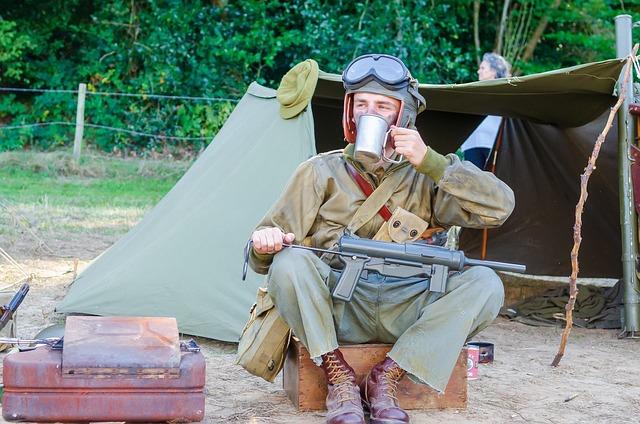France is reintroducing a form of limited military service next year, with plans to enlist 3,000 volunteers, the BBC reports. This move marks a significant shift in the country’s defense policy, aiming to strengthen national cohesion and readiness amid evolving security challenges. The reinstatement comes after the suspension of compulsory service nearly four decades ago and reflects broader efforts to engage younger generations in military and civic duties.
France Reinstates Limited Military Service to Strengthen National Security
In a strategic move to enhance national resilience and preparedness, France is reintroducing a limited form of military service, targeting the enrollment of approximately 3,000 volunteers in the upcoming year. This initiative aims to bolster the country’s defense capabilities amidst evolving geopolitical tensions and increasing demands for national security reinforcement. The program will focus on providing essential military training and skills development while fostering a sense of civic duty among participants.
The reimplementation will feature a flexible, shortened service period to encourage participation from a wide demographic, including young adults eager to contribute to the nation’s security. Key elements of the program include:
- Modular training sessions designed to equip volunteers with practical defense and emergency response skills.
- Integration with civil security forces to support broader public safety efforts.
- Voluntary commitment with incentives for ongoing engagement in related community or military roles.
| Aspect | Details |
|---|---|
| Number of Volunteers | 3,000 |
| Service Duration | Short-term, modular |
| Target Group | Young adults, voluntary |
| Primary Focus | Training, civil defense support |
Implications for Youth Engagement and Defense Preparedness
Reintroducing a limited military service taps into the potential of France’s younger generation, fostering a renewed sense of civic duty and national identity. Engaging 3,000 volunteers offers not only practical training but also an opportunity to instill discipline and teamwork, creating a motivated pool of young individuals prepared for national defense roles. This approach serves as a bridge between civilian life and military readiness, ensuring that the country’s youth are more aware of defense challenges and the importance of contributing to national security.
Key outcomes expected from this initiative include:
- Enhanced physical and mental resilience among participants
- Strengthened community ties through shared service experience
- Development of skills useful for both military and civilian careers
- Improved rapid mobilization capabilities in times of emergencies
| Aspect | Projected Impact |
|---|---|
| Youth Empowerment | Boosts confidence and leadership skills |
| Defense Readiness | Creates a trained reserve force |
| Social Cohesion | Brings diverse backgrounds together |
| Career Pathways | Introduces vocational training opportunities |
Strategies for Integrating Volunteers into Modern Military Operations
Effectively embedding volunteers into contemporary military frameworks requires a multifaceted approach tailored to the evolving nature of warfare. One key strategy emphasizes comprehensive training programs that align civilian skills with military needs. This includes intensive boot camps, cybersecurity workshops, and first responder drills designed to prepare volunteers rapidly for their roles. Additionally, fostering a culture of integration through mentorship initiatives connects experienced personnel with newcomers, ensuring a smooth transition and reinforcement of military values.
Operational success also hinges on the strategic deployment of volunteers in areas where their unique competencies can be maximized. For instance:
- Logistics and supply chain management
- Information and communications technology (ICT) support
- Medical assistance and trauma care
- Community liaison and civil support
By leveraging these focused deployments, military units benefit from enhanced flexibility without compromising effectiveness. The table below outlines a sample framework for volunteer assignment distribution within modern operations:
| Role | Volunteer Percentage | Primary Function |
|---|---|---|
| Support Services | 40% | Logistics, Transport |
| Technical Specialists | 30% | Cybersecurity, Communications |
| Medical & Health | 20% | Emergency Care, Mental Health |
| Community Engagement | 10% | Civilian Coordination |
Future Outlook
As France moves to reinstate limited military service with an initial intake of 3,000 volunteers next year, the initiative marks a significant shift in the country’s defense strategy. Aimed at strengthening national security and fostering civic engagement among youth, this move reflects broader geopolitical uncertainties and the government’s commitment to preparing the next generation for emerging challenges. Observers will be watching closely to see how this program evolves and what impact it will have on France’s military readiness and social cohesion in the years ahead.




